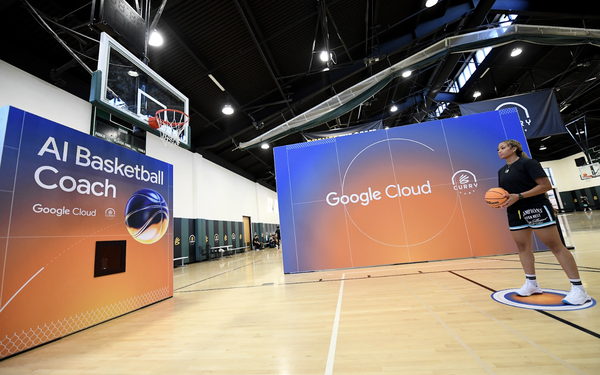
NBA star Stephen Curry has signed on as Google's
"performance advisor" to help support hardware, features, and AI services related to Health, Pixel, and Cloud products.
The move is based on Curry's athletic experience and expertise, but look
more closely at today's announcement from the Made by Google event and advertisers will find other benefits.
The partnership was announced today at Made by Google.
Curry will test and
provide feedback for Fitbit’s new personal health coach. He will share coaching methods and philosophies to improve features.
The health coach is a Gemini-based chatbot that
generates custom workouts and metric targets for Fitbit app users based on health goals -- one of the many features that will benefit advertisers in the long run.
The Pixel smartphones
and its fitbit watch are intended for consumers, but the focus can be reversed to analyze how Google 10 series phones with improved processing power can support advertisers.
advertisement
advertisement
Google did not
mention any advantages for advertisers, but it's all about the data.
Artificial intelligence (AI) capabilities can provide more precise support for advertisers -- going beyond general
targeting to hyper-personalization and highly optimized campaigns. The phone needs to handle all the high-tech features and services.
Google announced the Pixel 10 series on Wednesday, along with a smartwatch and wireless earbuds. With them come new AI features.
Features on the 10 series phones
leverage AI and Gemini models to provide helpful suggestions, improve photo quality, and simplify various tasks.
AI features include Magic Cue, Camera Coach, and translation for calls. All are
designed to improve experiences and creativity.
The Pixel 10's AI, including the power of its advanced processor, can analyze vast amounts of on-device user data, including app use patterns,
browsing history, location data, search queries, and real-world interactions captured through features like Camera Coach to create detailed and nuanced audience segments. It goes beyond basic
demographics to understand psychographic data, attitudes, interests, and lifestyle choices.
Magic Cue does not directly create advertising content, but it could indirectly facilitate
contextual advertising by identifying a user's intent or current context based on their interactions within Google apps like Gmail, Calendar and Messages.
If a user exchanges messages or
emails about an upcoming trip, for example, Magic Cue may suggest travel details or things to bring and wear. Google could also use contextual information to inform ad placements within other apps for
advertisers. This is just an example.
Given permission by the user, Magic Cue in the future is expected to support some third-party apps. If a user grants permission for Magic Cue to
access data from those apps, it could expand support and expand contextual recommendations or advertising suggestions.